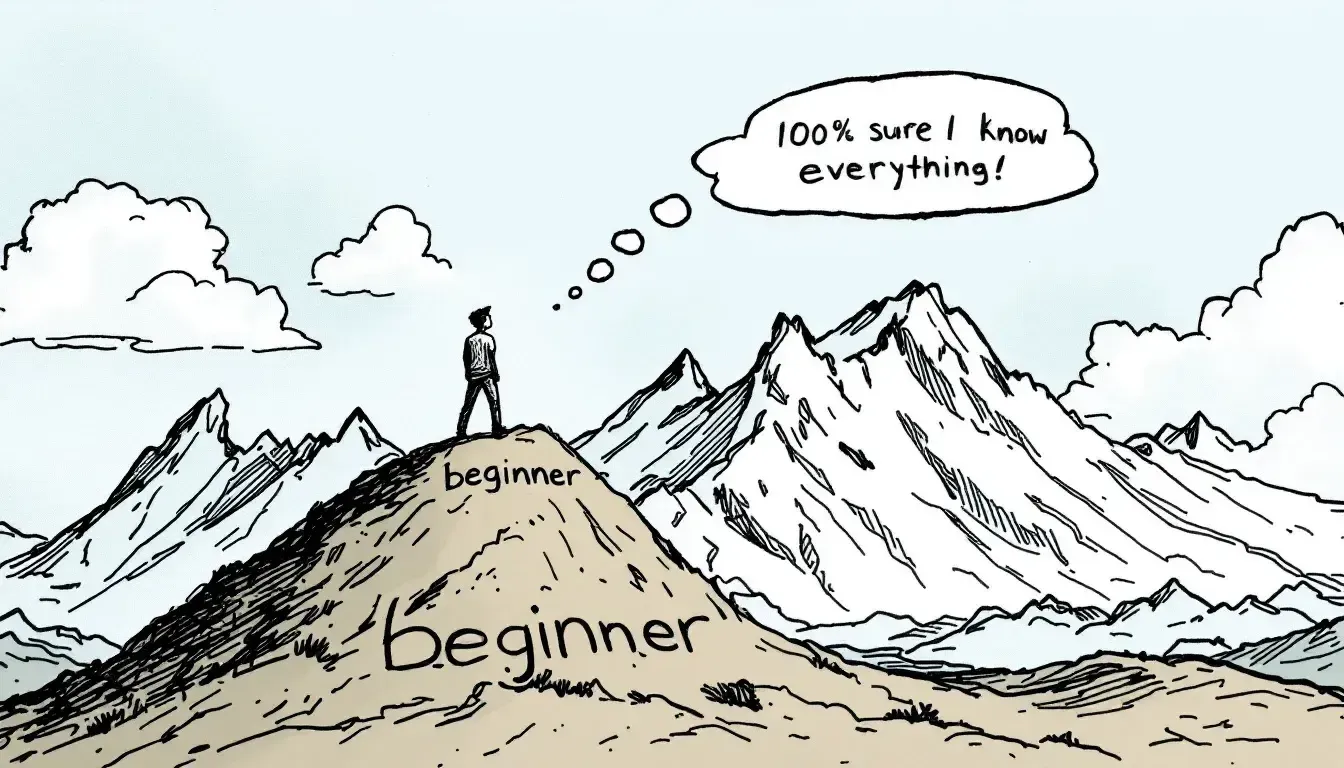When Not Knowing Makes You Sure

Rea,
In 1995, a man named McArthur Wheeler robbed a bank in broad daylight with lemon juice smeared on his face. When police caught him (they had clear security footage), Wheeler was genuinely shocked. He truly believed the lemon juice had made him invisible to cameras.
Why? Wheeler knew lemon juice can be used as invisible ink. Somehow, he convinced himself that if lemon juice is invisible on paper, it would make his face invisible to cameras. The remarkable part wasn’t just his mistake, but his absolute confidence in his flawed understanding.
Have you ever been completely sure about something, only to find out later you were wrong? This happens to all of us, but there’s something interesting about why.
This bizarre robbery caught the attention of psychologist David Dunning, who teamed up with graduate student Justin Kruger to investigate: Why do people sometimes feel so confident about things they clearly don’t understand?
In 1999, they tested Cornell University students on grammar, logic, and humor, then asked each to estimate how well they did. The results were striking. Students who scored in the bottom 25% thought they performed in the top 40%. The worst performers overestimated their abilities the most, while top performers slightly underestimated themselves.
This pattern has been found in many areas - from driving to chess to medical knowledge. It’s now called the “Dunning-Kruger effect,” and it reveals something important about learning.
When we know very little about a subject, we don’t know enough to recognize how little we know. It’s like standing at the bottom of a mountain but only seeing the small hill in front of you. You think you can see everything, so you feel confident. As you climb higher, you suddenly see the actual mountain ahead - all the things you didn’t know that you didn’t know. Your confidence drops as you realize how much more there is to learn.
Only with true expertise does confidence rise again - but usually with more humility. Real experts know the limits of their knowledge.
This matters because overconfidence when we know little can prevent us from learning more. If you think you already understand something completely, why keep studying it? This is why people who know just a little about complex topics often have the strongest opinions.
The next time you feel certain about something you haven’t studied much, remember Wheeler and his lemon juice. Being willing to say “I’m not sure” isn’t a weakness - it’s often the first step toward real knowledge.
Love, Abba
P.S. Think of something you know a lot about and something you know just a little about. For which one is it easier to admit what you don’t know?

